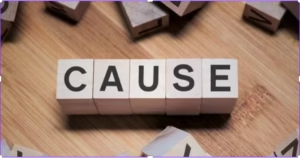Why Is My Dog Throwing Up White Foam?
Seeing your dog throwing up white foam can be alarming. While it may not always signal a serious issue, understanding the causes and what to do is essential. Let’s break this down in simple terms to help you understand why this happens and how to care for your furry friend.

Common Causes of White Foam Vomiting
Dogs can vomit white foam for various reasons, ranging from mild to severe. Here are the most common causes:

1. Indigestion
Sometimes, dogs vomit white foam due to an upset stomach. If they’ve gone too long without eating, stomach acid can build up, causing them to throw up frothy bile.
2. Acid Reflux
Dogs, like humans, can experience acid reflux. When stomach acid irritates the esophagus, it leads to white, frothy vomit.
3. Gastroenteritis
This condition involves inflammation of the stomach and intestines. It can cause vomiting, diarrhea, and lethargy. If your dog shows these symptoms, consult a vet immediately.
4. Bloat (Gastric Dilatation-Volvulus)
Bloat is a life-threatening condition where the stomach fills with gas and twists. If your dog is retching but not producing vomit, seek urgent care immediately.
5. Kennel Cough
Dogs with kennel cough often produce white foam due to excessive coughing. It’s a contagious respiratory infection that requires medical treatment.
6. Pancreatitis
Inflammation of the pancreas can cause vomiting and abdominal pain. Fatty foods often trigger it, so monitor your dog’s diet carefully.
7. Eating Non-Food Items
Dogs are curious creatures and sometimes eat things they shouldn’t. Foreign objects can irritate the stomach, leading to frothy vomiting.
What Should You Do When Your Dog Throws Up White Foam?
Knowing how to respond when this happens can significantly affect your dog’s health. Follow these steps:

1. Observe Your Dog’s Behavior
Watch for other symptoms like lethargy, loss of appetite, or diarrhea. If your dog seems otherwise normal, the vomiting may be an isolated incident.
2. Withhold Food for a Few Hours
Rest your dog’s stomach by withholding food for 6-8 hours. Ensure they have access to fresh water to stay hydrated.
3. Reintroduce Food Gradually
Start with a bland diet, such as boiled chicken and rice, to see if your dog can keep food down.
4. Consult Your Veterinarian
Contact your vet for professional advice if vomiting persists or other symptoms develop.
When to Seek Immediate Veterinary Care
White foam vomiting can sometimes indicate serious health problems. Seek immediate help if your dog shows any of these signs:
- Persistent vomiting lasting more than 24 hours
- Signs of bloat (distended abdomen, unproductive retching)
- Lethargy or weakness
- Blood in the vomit
- Difficulty breathing
Preventing White Foam Vomiting in Dogs
Prevention is always better than cure. Here are some tips to reduce the chances of your dog throwing up white foam:
1. Maintain a Consistent Feeding Schedule
Regular meals help prevent an empty stomach and reduce acid buildup.
2. Avoid Fatty or Spicy Foods
Stick to high-quality dog food and avoid giving table scraps that can upset their stomach.
3. Keep Hazardous Items Out of Reach
Dogs are known for eating non-food items, so keep trash bins secured and small objects away from curious mouths.
4. Routine Vet Visits
Regular check-ups help detect and address potential health issues early.
Conclusion
Seeing your dog throwing up white foam can be distressing, but understanding the causes and taking appropriate action can ensure their well-being. Always observe their behavior closely and don’t hesitate to consult a veterinarian if needed. You can keep your furry friend happy and healthy by taking preventive measures and being attentive.
If this guide has helped you, share it with other dog lovers to spread awareness. Your pup deserves the best care possible!




